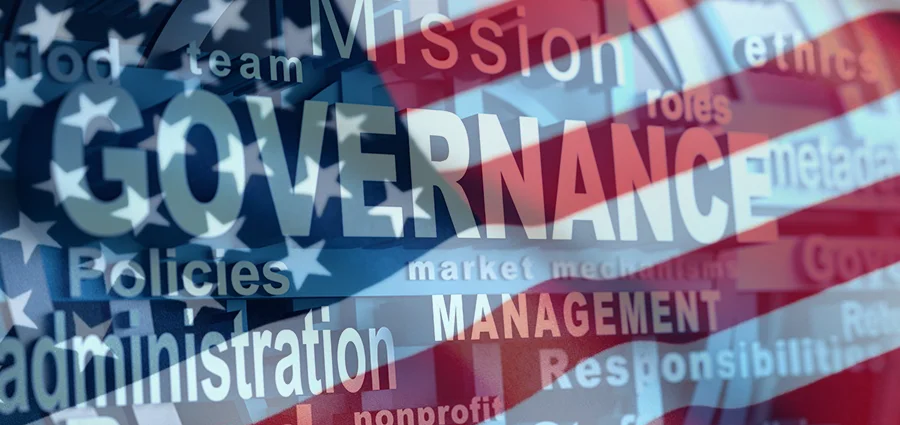10 Essential Government Regulations on Business You must never ignore
The U.S. government regulations on business mandate companies to abide by Federal, State, Local Legislative, and Regulatory Agencies to protect employees’ rights and control the volume of power and influence that the businesses have in their corporate society.
The legal implications of certain regulations on business are more noticeable than the others, depending on their relevance to the employees and customers in the country.
For example, some business-related regulations monitor the ways in which corporate bodies report income and pay taxes, while other types of regulations ensure that the companies maintain disposal of their waste within the set boundary of the federal laws.
As a matter of fact, the U.S. government regulations take control of every kind of business anywhere in the United States.
Therefore, familiarizing with federal regulations comes in handy to run your business smoothly without infringing any legal implications associated with your business.
What is the best way to knowing the government regulations on businesses?
The first rule of thumb to understand government regulations on business is understanding where to look and what kind of laws you are looking for.
There are so many online reservoirs you can use to find regulatory information related to your particular business.
This blog is highlighting some of the most common business-related regulations enforced by the U.S. government to help you get familiar with the federal laws about how to conduct a business in the country consistent with the legal compliances.
A breakdown of 10 Government Regulations on Business in America
1. Tax Code
IRS (The Internal Revenue Service) has published detailed information about federal tax responsibilities for business owners in the United States.
Know that the government regulation is very much concerned with the tax liability for business owners.
Therefore, be familiar with particular tax liabilities, the deadline for their payment, and how to set up your business to account for future tax payments.
Companies registered within the U.S. are required to pay federal taxes or state taxes, depending on the state in which the business is registered.
Tax evasion or not paying taxes on purpose will account for hefty penalties and potential jail term for the perpetrator business owner.
Does the type of tax I’d pay depends on the kind of business I operate?
Yes.
You are liable to pay the kind of tax based on the type of business you have formed.
Meaning, when it comes to paying a tax, it is regulated based on the type of business you are conducting.
For instance, if you own a sole proprietorship, you will pay your business taxes differently than an incorporated business called S corporation.
Types of tax regulations in business
- Income Tax – This regulation mandates businesses to pay their income tax as they earn and receive income. They have to file an annual tax return.
- Estimated Tax – According to IRS, an estimated tax payment consists of income tax, along with self-employment tax and alternative minimum tax. Responsible parties to pay estimated tax include sole proprietors, partners, and S corporation shareholders, if their tax liability is $1,000 or more when their return is filed.
- Employment Tax – Employment taxes are supposed to be paid by companies having staff on their payroll.
- Excise Tax – According to IRS, an excise tax is imposed on numerous goods, services and activities. These taxes are imposed followed by companies purchasing some specific goods that fall within excise tax regulations.
2. The U.S. Department of Labor (DOL) Laws
More than 180 federal laws come under the ambit of U.S. Department of Labor (DOL). They regulate workplace activities for about 150 million workers and 10 million workplaces.
Visit the website, elaws’ Advisors that lays out detailed overview of DOL Laws, including federal employment laws applicable within your business or organization, and the type of on-site posters you need to hang in your workplace.
See the new guideline of DOL on posting notices for workplaces (remote, and hybrid).
The Department Of Labor Laws regulate wages and hours, workplace safety and health, and worker’s compensation, along with employee benefit security and employee protection, etc.
3. Antitrust Laws
The U.S. government regulations regarding antitrust forbid companies from indulging in unprofessional conducts, such as –
- Conspiring against third-party vendors or competitors.
- Endangering competition in the marketplace.
If the competition is ended, it would result in the monopoly of a single business entity in the market and would pronounce extinction for other businesses relatively weaker on finance and size.
It is the prerogative of the States to enforce additional antitrust regulations if deemed necessary, according to the federal statutes.
Under antitrust laws, some of these business behaviors are not allowed:
- Conspiring to fix prices.
- Deceptive business strategies.
- Establishing dominance or monopoly in the marketplace by killing competition.
4. Advertising Laws
The U.S. government regulations related to advertising mandate companies be truthful and honest in their commercials and refrain from indulging in deceptive tricks and practices.
For example, if you’re going to publish testimonials in your ads, you need to follow additional regulations, like validating the testimonials with genuine proof.
Your business will be penalized for violating these rules.
Under advertising rules, the following marketing aspects are governed –
- Health claims – Companies that market dietary supplements, food, over-the-counter drugs, and other health-related products must substantiate their ad slogans or advertising claims.
- Environmental advertising – Companies must substantiate their claims like “Green Products” with scientific evidence.
- Made in America – Businesses must show the actual number of their products made in America before promoting them with the “Made in America” label.
- Online advertising – Regulations under online advertising mandate companies to maintain transparency and truthful standards on the Internet. The same regulations are applicable on physical marketing like catalogs or mailers.
- Telemarketing – The regulations forbid companies from fraudulent telemarketing calls.
5. Can-Spam Act for Email Marketing
The government regulations associated with email marketing are very similar to those of advertising, requiring companies to comply with separate regulations under the CAN-SPAM Act.
Therefore, if you are using commercial emails for marketing your products or services, the Can-Spam Act allows the intended recipients of your commercials to stop receiving your business emails.
There are hefty penalties for violating the laws.
So, the fundamental purpose of this law is to protect the rights of recipients to opt-out of your commercial emails.
Under the Can-Spam Act -
- A business is advised not to use misleading header information.
- A business should avoid using deceptive subject lines that don’t correctly reflect the content of the message.
- A company must explicitly disclose that the message is an advertisement, not something else. Commercial messages must include correct and valid physical address.
- Mention clearly that the recipients are free to opt-out of receiving future emails from you, with easy-to-understand steps to unsubscribe future emails of your business.
- Once the opt-out request from the recipient is received, ensure it’s processed within 10 business days without charging anything or demanding any personal information from the recipient.
- If your business has hired another company to do email marketing for you, the law still compels to monitor what others are doing on your behalf.
6. Environmental Regulations
According to the U.S. Environmental Protection Agency (EPA), a business must follow environmental standards, depending on the industry in which it operates.
The relevancy of this law is very important for your business if it markets anything claimed as natural, organic, or eco-friendly.
There are several rules and regulations associated with environmental safety that might affect your business, both on the federal and state level.
For instance, if you’re running an automotive repair shop, you must follow regulations related to pollution and waste management.
The website, EPA, provides detailed information for businesses about complying with environmental laws.
7. Privacy Laws
The federal business regulations require companies to protect the privacy of their customers and save and secure their crucial data.
For example, The Children’s Online Privacy Protection Act (COPPA) mandates companies to ask permission from the parents before collecting personal information about their children.
Companies that evaluate the creditworthiness of customers must follow valid procedures when using and disposing of credit reports.
In the U.S., States can impose their own privacy laws on businesses.
For instance, under the California Consumer Privacy Act (CCPA) of 2018, a customer can delete his personal information that a business may collect from him.
8. Licensing & Permits
Depending on industry and location, a business must comply with federal, state or local business licenses, permits or certificates.
For instance, a business selling tobacco or alcohol must renew their sales permits regularly, considering those products are strictly regulated.
There are also special certification and licenses for professional service providers like nurses or plumbers.
9. Insurance
A business is required to purchase workers’ compensation insurance right after hiring its first employee.
Subject to certain conditions, the insurance regulations of the federal government mandate all businesses, except for Texas, to purchase workers’ compensation insurance.
10. Reporting Pay Data
According to Fair Employment And Housing, private companies having more than 100 employees (with at least one employee in California) are required to report how much they pay each of these employees to the Department of Fair Employment and Housing (DFEH) every year.
The purpose of this law is to ensure that companies are maintaining federal “nondiscrimination” laws.
Conclusion
The U.S. government regulations on businesses intend to protect employees’ rights, and ensure environmental preservation, along with mandating companies to be accountable for their power and influence in their corporate society.
For many business owners, there is lot to digest as far as government regulations are concerned.
You can also check in your local SBA office for assistance about business-related regulations.
If you are seeking additional counseling on government regulations on business prevalent in your State, hire a counselor.




